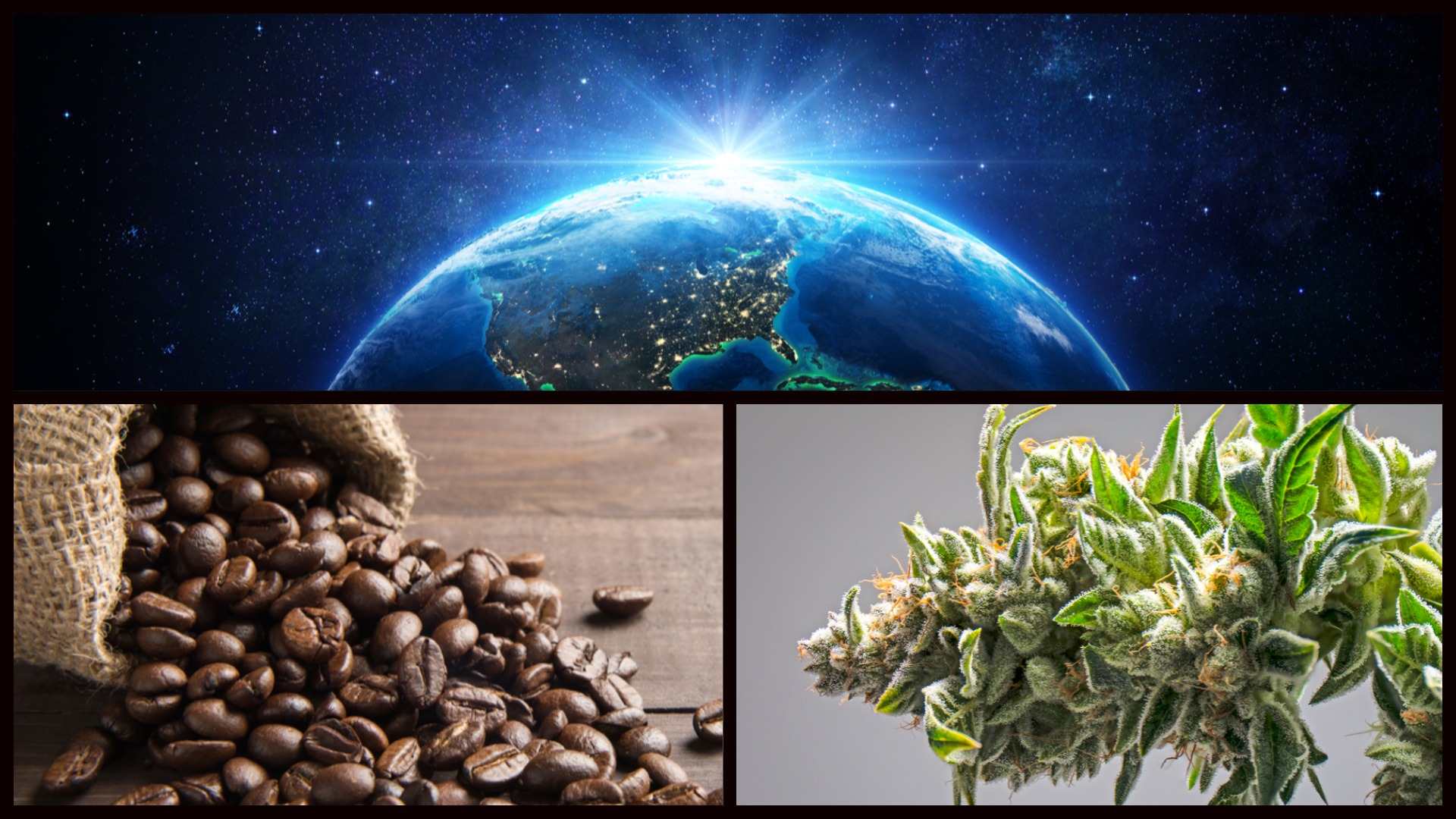Earth's Two Most Important Crops—weed And Coffee—are Heading To Space
Only yesterday, I wrote that there were three big pieces of space-related news this week, which was pretty impressive considering it was only Tuesday. Now it's Wednesday and I get to inform you that weed and coffee are now also heading up to the cosmos in the name of science. As these are two of my favorite things on earth (and soon, my favorite things in space), this officially has become the most important news of the week. Sorry, wheelchair chicken.
Front Range Biosciences, an agricultural tech company from Colorado (of course), has announced plans to send cultures from coffee and hemp plants to the International Space Station through a partnership with SpaceCells USA Inc. and BioServe Space Technologies at the University of Colorado, Boulder. The mission will examine zero gravity's effects on the plants' metabolic pathways. A specially designed incubator will hatch 480 plant cultures, which is equal to 420 plant cultures giving 110%.
While hemp is technically cannabis, it has a negligible amount of THC, which means that "on the record" this mission is more about making rope, textiles, and CBD-infused burgers at Carl's Jr. Even though I know absolutely nothing about botany, I'm still going to surmise that whatever happens to these hemp cultures in microgravity is still going to bring me one step closer to getting sweetly toasted once I'm safely on the surface of Mars, far away from the murderous robots that have emerged victorious in their fight to enslave humanity. Or perhaps it might open up a brand new frontier in terrestrial cannabis culture.
"This is the first time anyone is researching the effects of microgravity and spaceflight on hemp and coffee cell cultures," said Front Range co-founder and CEO Jonathan Vaught. "There is science to support the theory that plants in space experience mutations. This is an opportunity to see whether those mutations hold up once brought back to earth and if there are new commercial applications."
As far as coffee is concerned, Front Range hopes that the research could help prevent the impending extinction of much of the world's coffee by engineering more resilient crops. Last year Front Range partnered up with Frinj Coffee to develop and supply coffee plants to farms in California—as it stands now, coffee is only able to thrive in equatorial countries like Colombia, Ethiopia and Indonesia.
After a month in space, the cells will be returned to Earth so Front Range can analyze the DNA and evaluate the effects of radiation and microgravity on the plants. Future studies are already planned that will involve crews harvesting and preserving plants at different points in their growth-cycle. Rest assured that even though the Earth is swiftly careening towards a climate apocalypse, scientists are trying their best to make sure we don't lose the truly important things to severe weather changes or catastrophic natural disasters. After all, we're going to need coffee and weed if we want to stay sane enough to fight the floods and robots.
